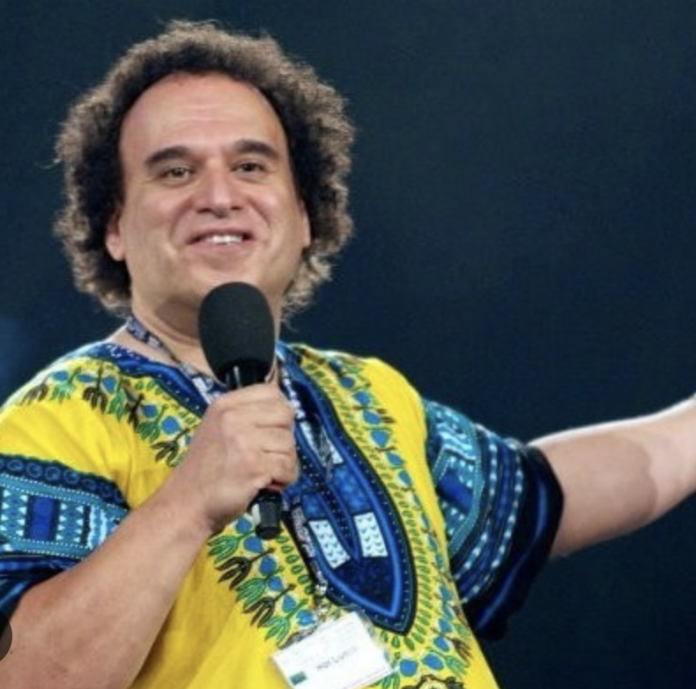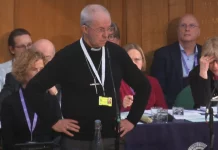These are testing times for anyone even loosely connected with charismatic life within, or adjacent to, the Church of England. To discover that a figure whose ministry was widely celebrated ‘used his spiritual authority to control people and that his coercive and controlling behaviour led to inappropriate relationships, the physical wrestling of youths and massaging of young male interns’ is proving seismic. The severe impact of Mike Pilavachi’s actions and behaviour has been underlined in the last few days, through the release of Matt and Beth Redman’s Let There Be Light documentary, and a poignant statement from Tim and Pete Hughes.
There are many important areas for reflection in this tragic situation: the support offered to victims; the silence of certain leaders, churches or movements; the Church of England’s safeguarding and disciplinary processes; and questions about complicity in notions of ‘Christian celebrity’ and the power of platforms. All these are important. But for me, working for a charity that champions renewal in the Holy Spirit, I have been reflecting in particular on some of the theological questions. In essence, to what extent does Mike Pilavachi’s disgrace negatively impact the charismatic theology he championed?
There are some initial observations which I feel are unavoidable. One is to note the barely disguised glee of some who clearly have no enthusiasm for informal worship or charismatic spirituality, using this episode as a convenient excuse to criticise a part of the church they already dislike. Perhaps naively, I continue to believe in the value of cross-pollination between the traditions of the church. Many of us had plenty to learn from Soul Survivor about engaging with the faith journeys of the young people who are so markedly absent from much of the Church of England.
It is also important to recognise that even those with little time for the charismatic are unlikely to be Donatists, expecting a sinless cadre of priests to lead God’s people. It is self-evident that abuse occurs in all traditions and expressions of church. Perhaps one of the most galling aspects of a prominent Christian leader falling from grace, like in this situation, is the recognition that elements of fruitful ministry co-existed with terrible sin. Theologically, this surely shouldn’t surprise us—but it does.
How the church responds then easily becomes an additional part of the problem—and the Church of England’s woes surrounding safeguarding are widely documented. My particular concern relates to the danger of importing a secular ‘cancel culture’ approach to abuse. The right pursuit of justice, and the preferential care for victims, are both vital. But the church must also continue to be a community that offers mercy and forgiveness to all people.
I always remember an example from my life as a journalist before ordination, producing TV news coverage of the sex abuse scandal within the Catholic Church in the USA. There was a case of a notorious priest whose abuse failed to achieve any threshold for legal action, but who was defrocked and expelled from the church. He had then gained work as a greeter at Disneyland, spending his days hugging children. The church had washed its hands of a sinner, with counter-productive effects. Meanwhile a pioneering Catholic centre seeking to rehabilitate offenders saw its funding from the national church reduced.
I have been deeply impressed by the L’Arche movement’s response to the posthumous discovery of Jean Vanier’s sexual abuse, and I wonder if this (though the comparisons are inexact) might offer a model for Soul Survivor’s future discernment. L’Arche has managed to recognise the distinction between an authentic call of God to a particular community within the church, and terrible human failure in a key individual. Its theological commission is unflinching in its analysis of the abuses committed by Jean Vanier, yet it has also managed to cherish L’Arche’s continuing call to those with learning disabilities.
As someone completely committed to the renewing work of the Holy Spirit within the church, I believe there were many jewels within Soul Survivor’s ministry. It is, perhaps, too easy now to offer blanket criticisms—the reality is surely more nuanced. In the context of a church experiencing massive decline in numbers of young worshippers, Soul Survivor offered something hopeful and genuinely transformative for them, rooted in convictions about God’s presence and power. Those claims remain true, even though they were often being shared from the platform by someone, who we now know, was severely compromised.
Some of my own reflections were first prompted in response to a post on Twitter from Becca Dean, tutor in youth ministry at Ridley Hall, Cambridge. She wrote,
I am angry again, on behalf of my younger self and other young leaders who felt that we needed to be ‘teachable’ and well behaved to earn a voice and a place at the table, rather than trust our gut feelings and bring our disruptive questions as well as our passion and talents.
It was her reference to the treatment of ‘disruptive questions’ that intrigued me. Having not grown up in an evangelical context, I don’t think I had fully appreciated the impact of an unspoken silencing culture.
The former journalist in me continues to value disruptive questions—and the ones being raised by this particular scandal have been considered helpfully by ‘churchgoing religion journalist’ Tim Wyatt in his ‘The Critical Friend’ Substack. He offers a compelling defence of truth-telling and light-shining in response to abuse:
We can brush it under the carpet where nobody sees it and continue in our comforting delusion that everything is OK. Or we can pull it out into the light and hold it there, making ourselves deliberately uncomfortable as we reveal to the world how ugly things can get in church.
The challenge is how we do this truth-telling without failing to ask the question later posed by Becca Dean: ‘In laymen’s terms: “What’s the bathwater and what’s the baby?”‘. I also think it’s worth being reminded—and charismatics of all people should be alert to this—that the principalities and powers of which St Paul writes have no interest in the flourishing of the church. They are quite content for both baby and bathwater to be dismissed.
Indeed, the thief of whom Jesus speaks in John 10:10 loves nothing better than to undermine the church’s ministry when it advances the kingdom. Part of the complexity involves acknowledging that many younger people in active Christian ministry today point to the formative (sometimes decisive) impact of Soul Survivor in their vocation. Those testimonies remain valid.
Read it all in Psephizo










